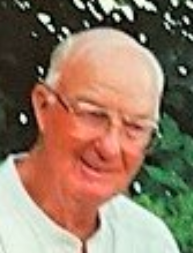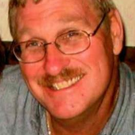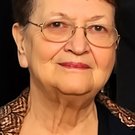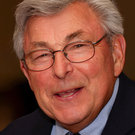Bud Kenyon
Legendary high school football coach, Bud Kenyon, died peacefully with his family present on Christmas morning, 2021, at his home in Greenwich, New York. He was 93.
Coach Kenyon found football as a 17-year-old Marine stationed in China — and he never let go.
Born Harold Clayton Kenyon Jr. in Bristol, Vermont, his father, Harold Sr., was a farmer and his mother, Ellen (née Varney) Kenyon, ran a boarding house.
At 17, Coach Kenyon joined the Marines and was sent to China during the 1948 occupation after World War II. He had played basketball and baseball at Bristol High School.
“My high school didn’t play football,” Kenyon told The Enterprise in 2015. “When I went into the Marine Corps, and ended up in North China, they had six teams … I wanted to try out. They made an end of me because I could catch. That got me started.”
When he came home, Kenyon finished his fourth year of high school and went on to Springfield College, where he was captain of the football team. “The rest is history,” said Kenyon. At Springfield, he became teammates and lifelong friends with two other legendary New York football coaches, Dick MacPherson and Bob Ford.
He started his coaching career in Oriskany where, in addition to football, he also coached basketball and baseball. In 1959, he moved to Hoosick Falls, where he introduced 11-man football. In less than two years, he turned a team on probation for misconduct into the runner-up for the leagues’ sportsmanship award.
Coach Kenyon came to Guilderland in 1965 as a physical education teacher and head football coach. “At Guilderland, he coached football with fellow Hall of Fame coaches and dear friends, Bob Steenburgh and Arty Waugh, as they enjoyed years of sustained success,” Coach Kenyon’s family wrote in a tribute.
All of the Kenyon boys — Kevin, Mike, Keith, and Chris — played Guilderland football and daughter Debbie was a cheerleader. Her father pointed out cheerleading was the only sport for girls in that era. Coach Kenyon credited his wife, Betty, who he married in 1952, for taking care of home life so he could concentrate on coaching.
Kevin Kenyon said in 2015 of his father’s coaching style, “He’d call you out immediately on character issues. It was always about responsibility and accountability.”
He also noted that his father founded and ran a clinic for Section II coaches. “He was way ahead of his time,” Kevin Kenyon said, getting competing coaches to learn from each other to better the game.
There were no cuts on Coach Kenyon’s team, his son said; anyone willing to do the work could join. “Some of the players we had were not athletes; they just wanted to be part of the team. They grew physically, mentally, and spiritually,” he said.
During Coach Kenyon’s tenure, the Dutchmen never had a losing season. In seven of his 16 years, Coach Kenyon’s teams had two or fewer losses; his overall record at Guilderland was 86-42-9.
Coach Kenyon, with his white hair, dark glasses, and fit physique was a familiar figure to the crowds of Dutchmen fans that packed school bleachers every Saturday in the fall, when football formed a social center for the community.
“We’re young, have real good skills, and I’m very optimistic about our chance in the always tough Suburban Council this year,” Coach Kenyon told The Enterprise at the start of the fall 1978 season.
“Very optimistic” was a phrase he used again and again. That year, his team won six games and lost one.
“If we don’t make too many mistakes, we’ll definitely be a serious contender for the title,” he said. That was his frequently cited goal. He’d show his current players film clips of some of the best players of past Guilderland teams, always pushing for improvement.
He served as Section II chairman for seven years and started the section’s annual football clinic, which he ran for 17 years.
Coach Kenyon retired from coaching at Guilderland in 1980 and from teaching in 1984. “His retirement meant a move to Cossayuna, New York, where he and the family lived the ‘lake life’ for 28 years, where he enjoyed his passion for country music, fishing, and golfing with friends and family,” his family wrote. “Unable to stay away from the game of football, a few years later he came out of retirement and continued his successful coaching career at Greenwich High School ….
“His awards in the game of football are numerous, with his induction into the Capital District Chapter of the National Football Foundation and College Hall of Fame as a member of the inaugural class of 2010 serving as the crowning glory of his career.”
In 2015, Guilderland planned to name its football field after Coach Kenyon but, just before the scheduled ceremony, the school board, in a split vote, rescinded the honor because district records were discovered showing that, 40 years before, Coach Kenyon had been found guilty by an independent panel of corporal punishment.
Coach Kenyon told The Enterprise then that he had caught a student — “a peeping Tom,” he called him — looking into the girls’ locker room. Coach Kenyon said he took the boy to the high school principal’s office.
“The first two times did no good,” he told The Enterprise. The third time, when he found the boy hiding in the bleachers, he recalled, “I told him, ‘Get down’ and he said, ‘Get lost.’ I got him by the nape of the neck and the seat of the pants and took him to the office.”
“A prominent force in New York State’s Section II football community for decades,” his family wrote, “he was most comfortable walking the sidelines — literally and figuratively. Bud was devoted to improving the game of football, as he hosted annual clinics and seminars for local high school and college coaches’ professional development.”
“It is the most emotional sport known to man,” Coach Kenyon said of football. “You find out if you control your emotions or your emotions control you.”
His favorite part?
“I like Monday through Friday the best — the preparation. The games, I enjoyed; it was hanging out your laundry on what you did during the week.”
At age 87, Coach Kenyon itemized the three things he missed the most about coaching, in this order: “One, Monday through Friday; two, the people I coached with and against that I respected; and, three, the players.”
His family wrote, “His impact on the game and a generation of students and athletes will long outlive him.”
****
Harold Clayton Kenyon Jr. is survived by his youngest sister, Mary Bergling, and her husband, Richard; by his five children, Deb Lauver and her husband, Gary, of Cambridge, New York, Mike Kenyon and his wife, Lori, of Tacoma, Washington, Kevin Kenyon and his wife, Terese, of Duanesburg, New York, Keith Kenyon and his wife, Judy, of Hyannis, Massachusetts, and Chris Kenyon and his wife, Mitzi, of Elkridge, Maryland. He is also proudly survived by 14 grandchildren and 15 great-grandchildren.
His parents, Harold C. and Ellen (née Varney) Kenyon, died before him, as did his loving wife of 68 years, Elizabeth “Betty” Kenyon, as well as his siblings, John Kenyon, Maggie Griffith, and Gardiner Kenyon.
“A special thanks to all of his former players, coaches, and friends that supported Coach until the end, and especially his caregiver Robin Daly,” his family wrote.
Friends of the family are welcome to pay their respects from 9 to 11 a.m. on Monday, Jan. 10, at the Greenwich Elks Lodge 2223 at 130 Bulson Road in Greenwich. A memorial service with Pastor Mike Crandall officiating will follow calling hours. Interment services will take place at 12:30 p.m. at the Gerald B.H. Solomon Saratoga National Cemetery at 200 Duell Road in Schuylerville. Following interment, a reception will be held at the Greenwich Elks Lodge.
“On Nov. 20, 2021,” his family wrote, “Coach cherished his participation in the 11th Annual Capital Region Football Hall of Fame Induction ceremony, allowing him the opportunity to visit with family and friends. His family would greatly appreciate any donations be mailed, in Bud’s name, to support the non-profit organization that hosted the event: The Capital District Chapter of the National Football Foundation, 15A Space Blvd. Albany, NY 12205.”
— Melissa Hale-Spencer



